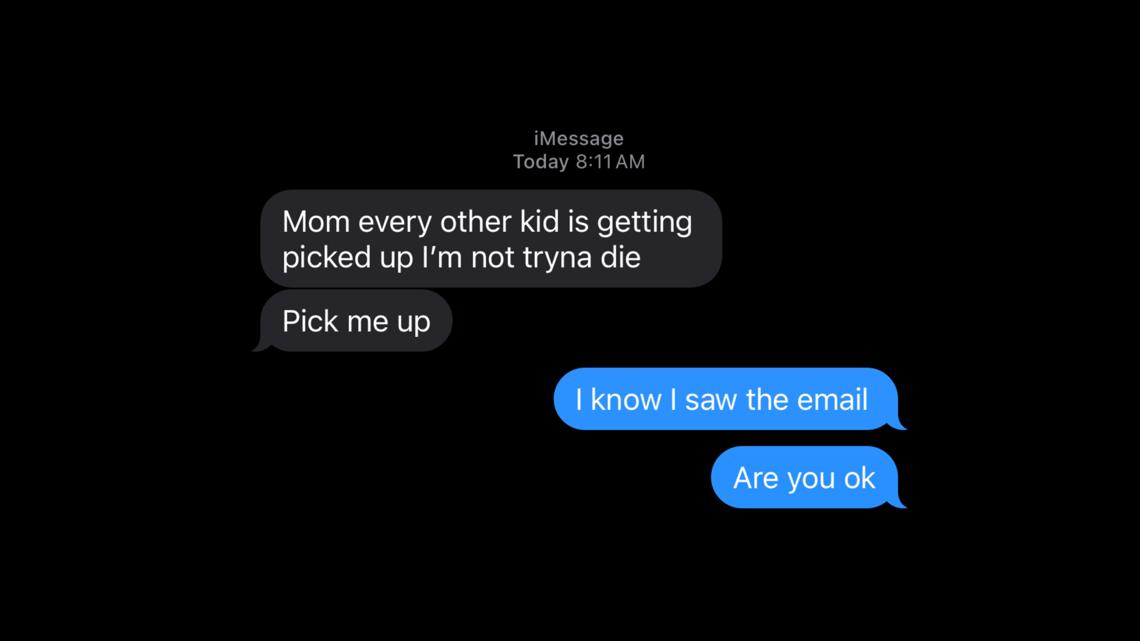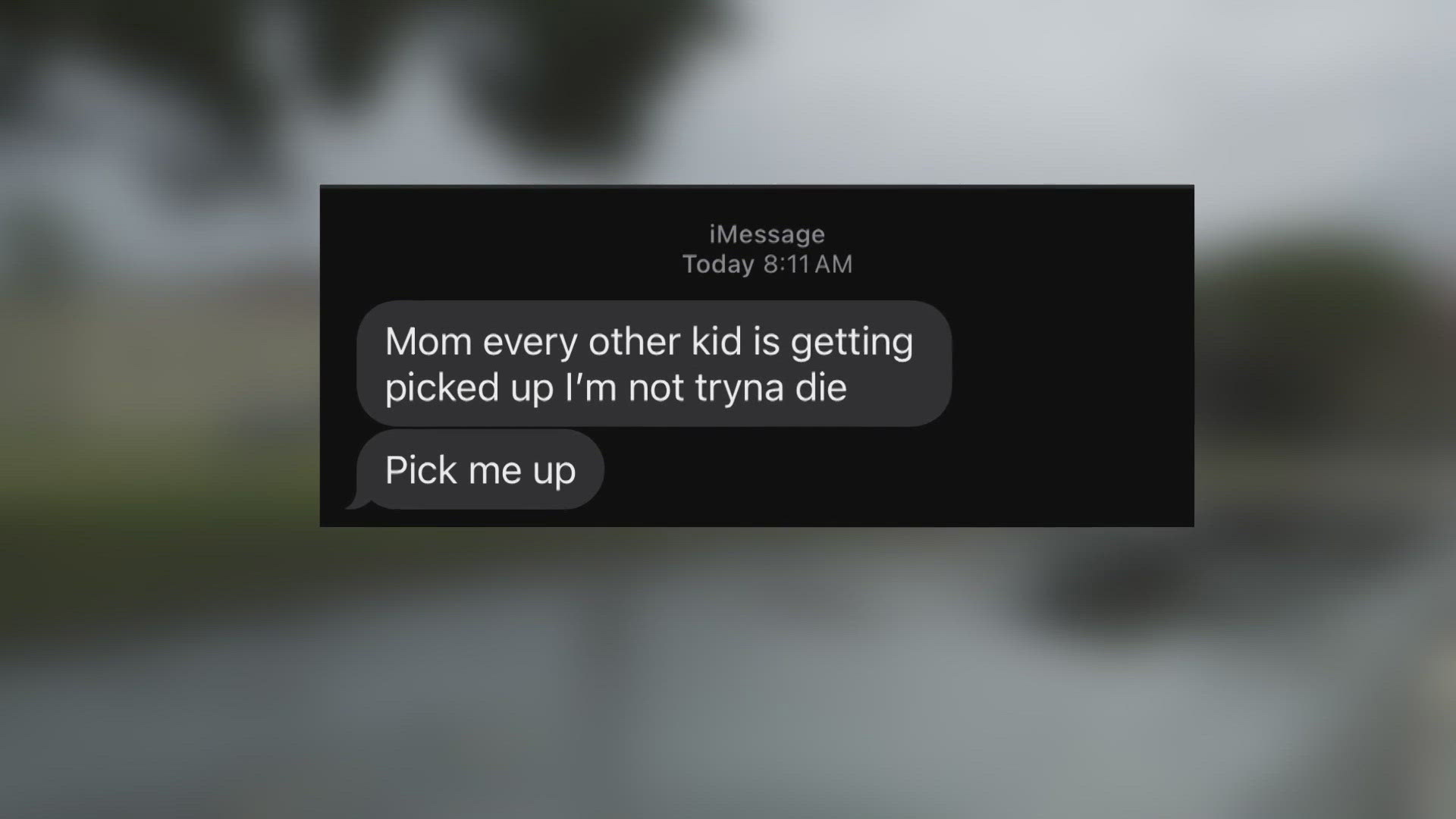ST. AUGUSTINE, Fla. — Over the last two weeks, there have been more than a dozen children arrested for making school threats on the First Coast.
As local law enforcement and school officials deal with the threats, parents now are on high alert and are having serious conversations with their kids.
Wednesday morning, Chelsea Schraufnagl dropped off her daughter who is in the 6th grade at Sebastian Middle School. Not too long after the drop off, Schraufnagl was on her way to work.
However, just after 8 a.m., alarming texts started coming in from her daughter.


"She continued texting me all morning saying, 'Please come get me, I’m scared, I don’t want to be here,'" said Schraufnagl.
According to the St. Johns County School District, Sebastian Middle School administration and the St. Johns Sheriff's Office spent time Wednesday investigating tips and rumors in social media groups.
These rumors have not been found to contain any factual information by SJSO or the school district.
This comes just one week after a 12-year-old student at the school was arrested for making school shooting threats.
RELATED: 12-year-old St. Johns County student arrested following 'high risk' school shooting threats
"I’m upset, I’m saddened by it," Schraufnagl told First Coast News. "I’m really upset that this is so normal for children these days. They have to worry about that."
While the unfortunate trend of threats on schools continues in Northeast Florida, psychologist Dr. Tracy Alloway encourages parents to have healthy discussions with their children about what's happening.
"Keep it to almost a need to know basis," said Alloway. "What is critical for them, so you don’t overload them not from a cognitive perspective, but also an emotional perspective."
Alloway said to keep in mind their emotions, their age and develop a good plan.
"Can they call you? Will they have access to a phone? What is the school’s action plan? The classroom action plan?" Alloway said. "Let them know that they have some agency in the situation, they have their own plan of action."
According to advice from Alloway, when it comes to elementary-age students, try to only share one to two pieces of information with them about what's happening.
For older students, she said you can share more information, but keep it on a need to know basis.

